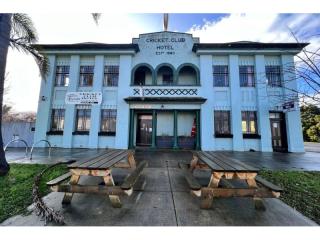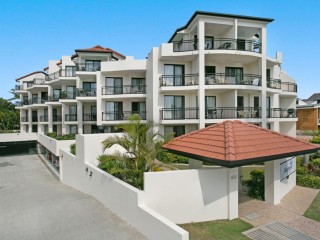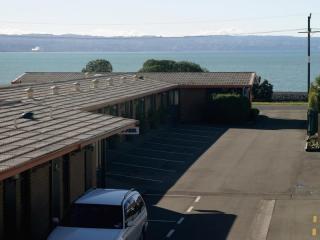The management rights industry is at a pivotal moment. For decades, it has appealed mainly to Baby Boomers and Gen X investors and business operators who viewed it as a stable, lifestyle-friendly way to generate income while preparing for retirement. Many came from corporate careers and were drawn to the opportunity to live onsite, run a business, and play an active role in hospitality and real estate.
But the sector is ever evolving. A new wave of operators has emerged: younger families seeking work-life balance, dual-career couples managing businesses together, and corporate-backed consortiums bringing scale and professionalism to the model.
Sue Fairweather, Executive General Manager at ULTIQA Hotels & Resorts, notes that appeal is also growing among Gen Z and younger Millennials, particularly those drawn to autonomy and lifestyle. “Living onsite, being part of a local community, and running a business that blends hospitality and real estate is increasingly attractive, especially when paired with the right training and mentorship.”
Through a partnership with OTTRO, ULTIQA is nurturing future talent with onsite shadowing, structured training, and mentorship pathways. Sue says: “We are seeing younger team members progress from front office roles into senior leadership positions. Watching them grow into confident and capable leaders has been one of the most rewarding aspects of my work.”
A young Millennial himself, Chris de Closey, Director at Switch Hotel Solutions, began his career in an onsite role and understands the barriers. “The hardest thing is getting young people into the industry in the first place. Too often, bodies corporate and employers prefer the older ‘mum and dad’ operators because of the perceived experience, especially in caretaking roles. Young applicants, especially Gen Z, can be unfairly written off due to stereotypes about work ethic or lack of maturity.”
He emphasises that many young managers come with solid hospitality training, but that alone is not always enough. “We need more operators willing to take a chance. I started my own career at 16 with a traineeship at an Outrigger Hotel, and that structured, hands-on training gave me the skills and discipline to succeed in management rights. That kind of real-world training makes a huge difference, but it only works if someone gives them the opportunity.”
To continue to thrive in the long term, the MLR industry must attract digitally fluent, socially engaged professionals who can meet modern guest expectations, adopt new technologies, and bring fresh energy to the role.

Attracting the next generation
Despite its unique appeal, management rights remains under the radar for many young Australians. Often overlooked as a career path, it has not been marketed effectively to the next generation. Yet the role offers an enviable mix of entrepreneurship, community connection, and tangible assets. But, it is also complex, relationship-based, and highly service-driven, requiring skills across guest services, facilities management, investor relations, leasing, and body corporate engagement.
Yun Bai, Cluster General Manager at Minor Hotels Australasia, puts it succinctly: “It is like being a hotelier, real estate manager, and caretaker all in one. It is demanding but never boring.”
Industry veteran, mentor and Director of MLR Services, Mike O'Farrell, concedes that the pathway into the industry needs to be clearer. “Entering management rights is not just a business decision; it is a journey. Younger operators need a roadmap. It’s “The Cycle of Life”, from buying in, to building a business, and planning an exit, every stage has its own challenges. That is why practical training, structured support, and early mentoring are so important.”
The hurdles: Finance, age, experience, and communication differences
One of the biggest barriers remains finance. Younger applicants often lack the equity, assets, experience or borrowing history that banks look for. Mike Phipps, Director of Mike Phipps Finance, explains: “Finance is a major challenge for young people, with banks hamstrung by credit policies and government regulation. Many are forced to rely on family just to get started. Unlike first home buyers, first business buyers are largely on their own when it comes to government incentive programs or innovative lending products. Perhaps it’s time for governments to take the initiative in conjunction with lenders.
“But it is not just about money,” he says.
“The best operators I have come across combine a background of strong industry training, hands-on hospitality experience, and a real passion for customer service. When talent, work ethic, and commitment are evident, the industry should be doing everything it can to support and develop it.”
For those eager to enter the industry, his advice is clear: “Save like crazy. Get a job with one of the larger private operators or one of the corporates like Mantra or Accor. Build your skills and reputation. Talk to your family early about your plans and possible family involvement when or if you look to buy an MLR. Many successful young buyers rely on family support to take that first step.”
Yun Bai also speaks to the importance of support and representation. Promoted to GM at 36, she now oversees multiple Brisbane properties but says the road was far from easy. “From my early experience in an MLR role to managing multiple properties today, I have seen how rewarding a career in management rights can be, but it does not come without challenges. As a young female operator, I worked hard to earn trust from body corporate members, investors, and tenants.”
Some bias around age and perceived experience remains in the industry, especially when related to the technical and operational side of building management.
Visible representation is key, Yun believes. “We cannot just open the door and expect young professionals to walk through. We need to mentor them, equip them with the right tools, and stand behind them as they build their careers.”
Marisa Millane, founder of WomenIn and Director of industry training provider OTTRO, says perception does remain a major hurdle. “To attract the next generation, we
must remove entry hurdles, shift perceptions, and offer strong pathways through training, mentoring, and real industry engagement. Their fresh thinking and digital fluency are exactly what the sector needs to evolve,” she says.
Paul Shih, CEO of PRET Australia, adds that generational differences in communication styles can present real challenges. “For onsite managers under 30, the biggest hurdle is often financial. Coming up with a 40 percent deposit is tough without family support. But even with strong tech skills, younger operators also need to bridge the communication gap.
“Owners and committees tend to prefer face-to-face interactions over emails or AI-generated replies. Building trust and relationships is essential. With the right training and shared experience, we can help younger operators grow both their business and interpersonal skills.”
Training and mentoring to help young operators succeed
Nathan Eades, National Director of Management Rights & Accommodation at Ras360°, thinks the industry needs to do a better job promoting itself. “Management rights is still a mystery to many young people. Buying a management rights business and commission-only roles like MLR broking can feel financially out of reach. But there is a real opportunity here. We need to build awareness through education, seminars, and stronger outreach, just like other industries do, to grow loyalty with the next generation. Brokers need to consider traineeships and mentoring those who show potential.
“In the end, hustle beats talent. Those willing to go the extra mile in service and communication are the future of this industry.”
Frank Matus, ResortBrokers MR agent and industry podcast host, agrees. “Right now, we have a genuine opportunity to shape the future of management rights. The introduction of compulsory Continuing Professional Development (CPD) is a positive step, and certified training initiatives like those offered by ARAMA are giving young people a real way in. But it is not enough. We need to connect fresh energy with experienced operators, create hands-on learning experiences, and start sharing real stories on platforms that speak to younger audiences, such as podcasts, video, and social media.”
Culture is key to keeping talent
From the perspective of Sam Steel, Founder of Resly, attracting and retaining younger staff takes more than competitive pay. It requires building a workplace culture where people feel valued, supported, and can see a clear future.
Many young workers move on simply because they do not see a path forward. Offering structured training, micro-credentials, and clear growth opportunities can change that.
As Sam puts it: “Great teams do not happen by accident. Investing in people drives loyalty, lifts service and helps future-proof the business.”
Resonating with Gen Z: Flexibility, purpose and progression
To connect with this generation, Sam says the industry must understand what matters most to them. “They are not just chasing a paycheque; they're seeking workplaces that align with their values. Their priorities are flexibility, purpose, and continuous learning.
“As standard, many expect hybrid or flexible working. They value autonomy, trust, and roles that contribute to something bigger. Employers who can clearly articulate their purpose and impact will stand out.
“This goes beyond surface-level perks,” he explains.
“It’s about fostering a real sense of belonging, encouraging input, and recognising contributions. When younger staff feel heard and engaged, they’re more likely to stay and grow.
“If the industry wants to secure the brightest emerging talent, it must shape roles to reflect these priorities—combining structured development with flexibility and aligning performance with purpose.”

Formalising the pathway: education and industry standards
Greg Jorgensen, Founder and Director of Management Rights Brokers Australia, believes that to attract and equip the next generation, the role of the resident manager must be formalised through structured education.
“To attract and support future managers, we need a mandatory pathway into the industry that enhances credibility and provides a strong foundation for those entering the profession,” he said.
He proposes the development of a formal study course, ideally delivered as a certificate or diploma, created in partnership with ARAMA and industry experts. This program would cover the full scope of day-to-day caretaking responsibilities across townhouse and apartment complexes. It would also include modules tailored to the unique demands of different business types, such as permanent rentals, short-stay holiday letting, student accommodation, mixed-use developments, and hotels.
The course would include essential skills such as budgeting, sinking fund forecasting, and managing emergency repairs, including issues like cyclone damage. A minimum number of practical onsite experience hours would ensure that new managers are not only qualified but prepared for the realities of the role.
Greg said that a formal, TAFE-level qualification would help shift public perception of management rights from a lifestyle-driven career change to a respected professional pathway. He added that with the right marketing and government support, such a course could play a major role in attracting and preparing the next generation of operators.
He also highlighted that the current barrier to entry remains low. While many new managers have the financial ability to purchase a business, they often lack the skills needed to operate effectively. Aside from ARAMA’s highly regarded one-day introductory course and a few private training providers, there is no mandatory education to enter the industry.
“To ensure the future of the sector, we need to demonstrate that managers can be professional, highly skilled, and focused on acting in the best interests of all lot owners,” he said. “A compulsory, structured learning platform would go a long way toward building the industry’s credibility and ensuring long-term success.”
Backing future leaders: The role of professional associations
This vision complements the work already underway by ARAMA. In June 2024, the
Queensland Government passed legislation requiring Continuing Professional Development (CPD) for all property professionals, including those in management rights. From June 2025, all licence renewals must be supported by two approved CPD sessions per year.
Trevor Rawnsley, CEO of ARAMA, says this creates a more professional entry point. “While finance remains a major hurdle for young people trying to enter the sector, a lack of awareness is just as limiting. Too few understand what this industry really offers or even realise it is a viable, rewarding career path. At ARAMA, we are working hard to change that.”
Trevor highlights ARAMA’s growing suite of initiatives designed to support new entrants, including the Management Rights Industry Training Program, (MRTP), specialised masterclasses focused on both operations and relationship management, and a structured mentoring network. With CPD now compulsory in Queensland, ARAMA is delivering practical, often free, training designed to build real-world confidence and long-term capability.
Trevor’s message to young professionals?
“Get involved. Join ARAMA, contribute to our committees, and help shape the future of this industry.”
The clock is ticking
For decades, the management rights industry has thrived thanks to the investment, commitment, and expertise of older operators. To move forward and to ensure smooth and successful exits for current operators, we must actively engage with the next generation.
As Mike O'Farrell puts it, this is “The Cycle of Life,” and keeping it in motion requires the industry to actively support the next generation. That means opening doors through structured training, mentorship, inclusive leadership, and a strong workplace culture. Just as important are financial support, visibility, and a clear path forward, all essential ingredients for attracting and retaining new talent.
There is more than one way to build a successful career in management rights. Now is the time to tell that story, support new entrants, and create a future that is more professional, diverse, and resilient.
The opportunity is here. The future depends on what we do next.
Related Content
Subscribe to resort news Accommodation for Sale Latest Industry News

![[1142] Registered NDIS Provider for Sale | 13 Registration Groups](https://1f25fe99b18e880e7193-01a9a8d7123904fe33d5c24c50fe4d84.ssl.cf4.rackcdn.com/80a1c1e9f2154d525faa87-m.jpg)
















